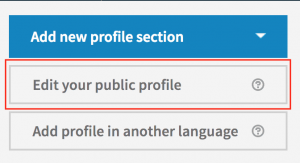How to deal with a jealous colleague or friend
If you find that you are the object of someone’s jealousy, here’s what you can you do.
BY Art Markman
“Jealousy is the jaundice of the soul.” -John Dryden
Chances are that you have looked at what someone else has—whether it was a promotion, a fancy new job, or a luxurious vacation—and felt a pang that you did not have the same thing. That’s natural. Psychologists call the process of comparing yourself to others social comparison. When you compare yourself to someone better off than you are in some way, you are making an upward social comparison. And, as we all know, upward social comparisons generally create some dissatisfaction.
There’s nothing inherently wrong with dissatisfaction. It creates the energy you need to be able to achieve your goals. Dissatisfaction becomes a problem when you are not able (or willing) to take actions that will help you reach a goal. At that point, the energy has no place to be directed productively. Dissatisfaction from a social comparison that cannot be directed toward an action typically reveals itself as jealousy.
So, a colleague or friend who is jealous of you has seen that there is something you have that they want and they feel unable to bridge that gap. If you find that you are the object of someone’s jealousy, what (if anything) can you do?
Are you the problem?
You have probably worked hard to get where you are in your career. That hard work is a critical part of your success as well as your ability to overcome failure. At the same time, if you have had a successful career that has involved recognition for your efforts, promotions, and a good salary, you have also benefitted from luck.
There are times that you were in the right place at the right time, had a particularly powerful advocate, or was selected for an opportunity that could have gone to a number of equally qualified individuals.
You should be proud of your accomplishments, and feel good about the role your efforts played in where you are today. But, you also need to acknowledge that there are plenty of people who work hard and have expertise who were not in the right place at the right time and did not benefit from the same luck you had. Failing to recognize that success has a healthy dose of serendipity in addition to hard work is where people can cross the line from pride to arrogance.
If you find that several people act in ways that make you think they are jealous, it may actually be that they are frustrated by your lack of acknowledgment that nobody is the sole author of their destiny. You may want to temper some of your pride and confidence with humility rather than assuming the jealous reactions of others are their fault.
Is there something to be jealous of?
There are times when someone is jealous of you, because of what they think you have gotten or accomplished, but they are mistaken. If someone is acting like they are jealous of you, and you’re not sure why, it is worth a conversation. It may be uncomfortable, but you can ask what you have done that leads them to be displaying anger, frustration, or contempt around you.
In the course of that conversation, you may find that person has made assumptions about you that are not warranted. Clearing up these misunderstandings can often provide a reset to a relationship that is starting to sour.

Can you lend a helping hand?
In most organizations, people judge fairness using an equity principle. Equity means that not everyone is treated equally, but that people who get more perks (salary, office space, attention, etc.) are ones who have done things for the organization that merit that extra treatment.
If you have been the recipient of benefits from the organization, you can help develop that sense of fairness by using your position, authority, and influence to help others. One thing that often limits people’s feelings of jealousy is the sense that an individual is a team player and has other people’s interests at heart. If you can become known as someone who helps others, it can insulate you from having others direct their frustration about unfairness at you.
There’s no pleasing some people
In the end, of course, you can only control your own actions and not other people’s reactions. If you have success, there may be some people who are jealous regardless of the things you have done to reach your success, to acknowledge the role that others have played, and to be a positive force in your organization.
At that point, you have to learn to accept that not everyone will like you or feel that you deserve what you have gotten. That can be difficult—particularly if you are an agreeable person who is motivated to be liked by others.
Ultimately, you cannot allow your personal happiness and satisfaction to be driven by what other people think about you. When someone’s jealousy says more about them than it does about you, you have to accept that they have negative feelings and move on without holding a grudge in case they change their beliefs later.
ABOUT THE AUTHOR
(1)








